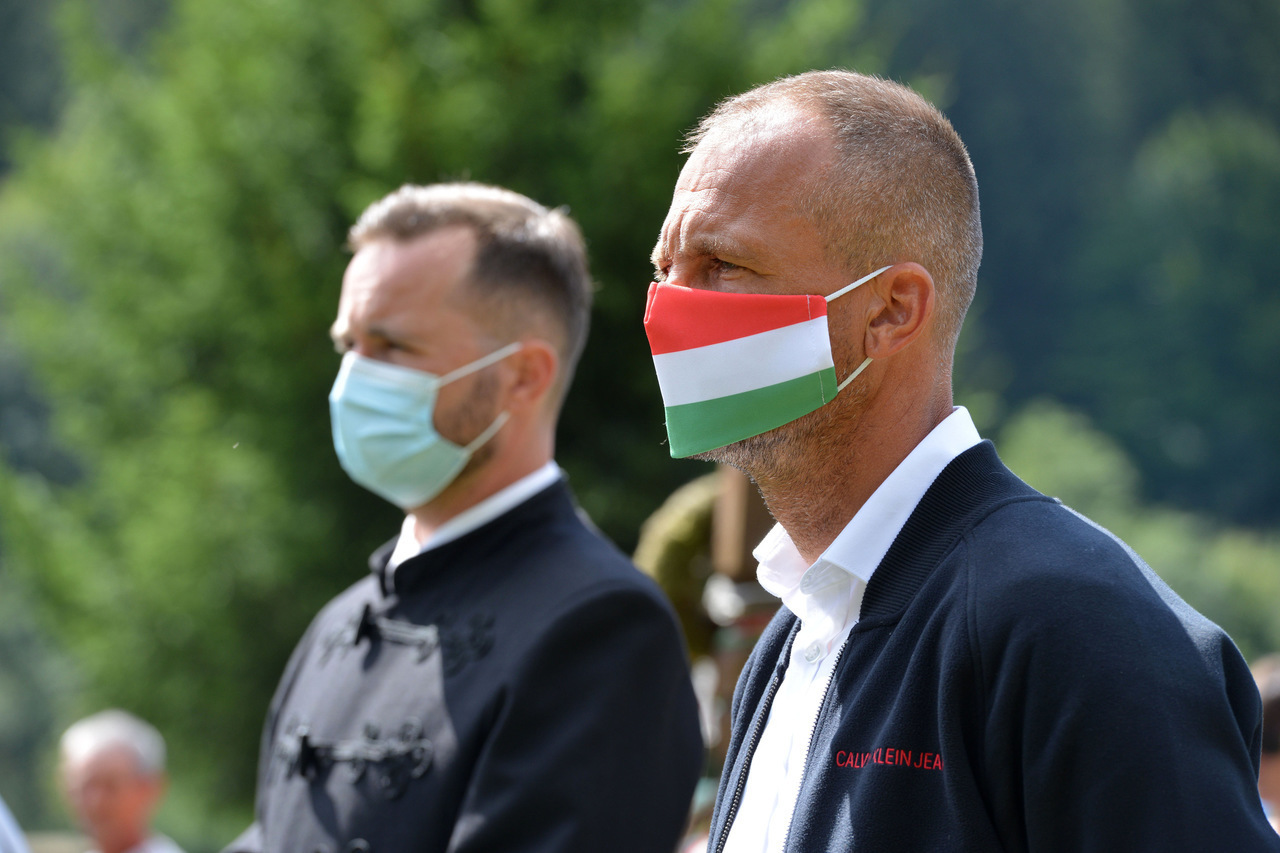On the shores of the Hungarian lake, coronavirus and politics are distant clouds
Sponsored content
BUDAPEST – Like most countries in the summer of the coronavirus, Hungary is not short of trouble. But none seemed to dampen the holiday mood on the shores of Lake Velence, where hundreds of bathers crowded in on a recent morning.
Trying to escape the scorching sun, some families spread out their towels in a shady spot – keeping almost no distance from strangers.
The Hungarian government has encouraged citizens to visit national destinations this summer, with Prime Minister Viktor Orbán jokingly adopting slogans promoting Hungary’s largest lake:
“More Balaton, less Brussels” and “More Balaton, less Adriatic Sea”.
But while some Hungarians are relaxing by the lake, many are also worried about the economic consequences of the pandemic: food prices have risen, tourism is down and many businesses are struggling.
One business that is not struggling in Hungary is the trading. Indeed, the cryptophile community count around 10 to 15,000 that use the safest sites to trade online. It is an enthusiastic community of builders and shopkeepers, served by three crypto exchanges. The foreign exchange market is one of the largest financial markets in the world, with a trade volume of more than $5.3 trillion per day. When you compare this with the trade volume of the New York Stock Exchange, currently just $22.4 billion per day, you can understand the enormity of the FX market.
On the other hand, a taxi driver said business is still about half its previous volume – while another complained of having to wait for hours for a passenger.
Orbán and the mayor of Budapest, Gergely Karácsony, opposed to the Prime Minister, asked the public to take precautions with regard to the coronavirus.
Budapest’s Gundel restaurant – more than a century old and known for the Gundel palacsinta, a special pancake with nuts, rum and chocolate sauce – closed indefinitely. “The legend is eternal”, said a note left on the restaurant door.
While many Hungarians stayed close to home, there was also a widespread lack of compliance with public health recommendations. On the train between Budapest and nearby Velence, some passengers did not wear masks, while others only covered their mouths. In a hairdressing salon in central Budapest, people were busy at work – without masks.
Orbán and the mayor of Budapest, Gergely Karácsony, an opponent of the prime minister, asked the public to take precautions regarding the coronavirus. But at the same time, some government and opposition figures regularly post photos on social networks where they can be seen with their hands around the shoulders of colleagues or attend events without a mask in sight.
Relatively few cases of coronavirus have been reported in Hungary. Since the beginning of the crisis, there have been 619 deaths related to COVID-19 and a total of 6,622 cases of coronavirus reported in Hungary – far fewer than in neighbouring countries such as Austria, Croatia, Romania and Serbia. Even those Hungarians who say they do not believe the government’s statistics acknowledge that the country has so far been spared the worst of the pandemic.
And with general elections coming up in 2022, the Hungarian government has begun to use the coronavirus crisis as a new twist on its favourite theme.
Chief Medical Officer Cecília Müller visited the southern border earlier this month to give a press conference on the health dangers posed by migration. In a carefully choreographed visit, Müller – who has become a household name during the pandemic due to her televised updates on coronaviruses – was photographed walking along Hungary’s border fence with uniformed police personnel.
But some Hungarians say the first shot in the election campaign was fired on 22 July – when the editor of Index, the country’s largest online media, was dismissed. The decision came a day after EU leaders signed an agreement on the EU budget with a generous allocation for Hungary and watered-down language on the rule of law.
The index has long been a thorn in the side of the ruling Fidesz party. With its large newsroom and coverage ranging from sports and entertainment to national security and corruption scandals,
Index has reached many segments of the population, including some voters in Orbán.
The dismissal of the editor, who had warned that the independence of the publication was threatened, led most editors and journalists to resign. A few other independent outlets remain, but readers wonder whether the void left by Index can be filled.
In Budapest, conversations about the country’s future often end with a shrug: some voters say they don’t believe Orbán will ever step down.
But the opposition parties have a plan. Despite a recent dispute last week, six of them – including the left-wing Liberal Democratic Coalition, the right-wing Jobbik, and Liberal Momentum – announced that they are beginning negotiations to field joint candidates in each of Hungary’s 106 electoral districts and will also draft a joint election platform.
“At last something has started!” Karácsony, mayor of Budapest wrote on Facebook following the agreement.
please make a donation here
Hot news
Top Hungary news: train derailed, huge tax against short-term rentals, new train stations, Hungarians about the war, Dracula, cocktail bars — 21 October, 2024
Hungarian research could yield breakthrough in Covid-19 treatment
5+1 stylish cocktail bars in Budapest to explore with your friends after a long day
Railway stations in major Hungarian cities to be completely rebuilt with private capital
Young people planning armed attacks against protected persons in Hungary – US intelligence warns
Hungary, Laos agriculture ties strengthening: Minister Linkham Duangsavanh visits Budapest





